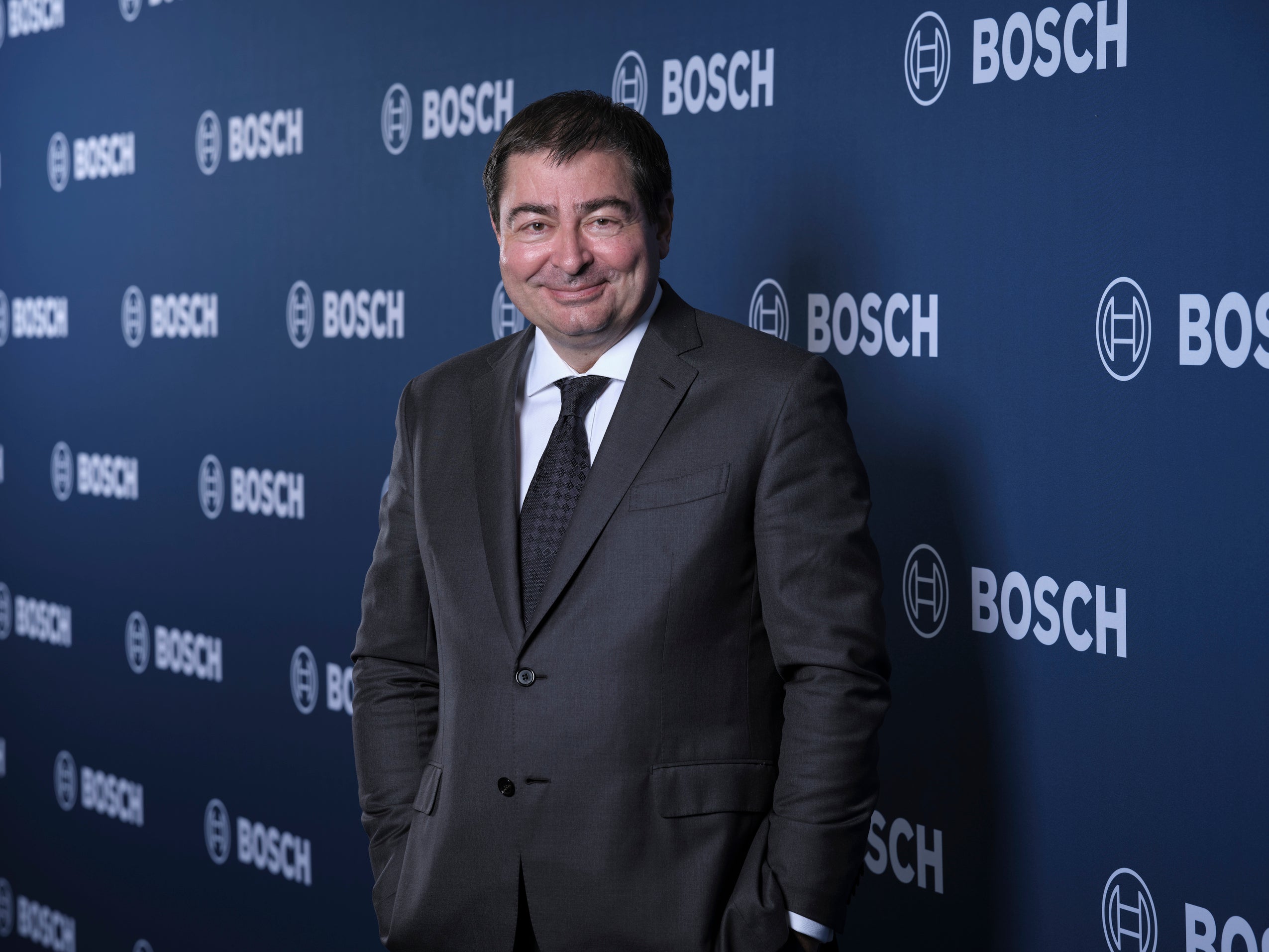
Give me a timeline of Bosch’s AI adoption from research and testing to full implementation?
There isn’t a single timeline. Bosch is a global company with a variety of different AI projects. Some are up and running already and are integrated in our day-to-day operations, and other projects are in the very early stages of development. That’s one of the exciting things about Bosch and AI, we design and manufacture so many innovative technologies all around the world that we’re always finding new ways to bring AI into our operations.
What are the company’s current AI use cases?
A use case that has been particularly successful is in our Feuerbach plant in Germany, where we’re using AI to inspect fuel injection components for engines. These are complex products, but AI recognises variations in the manufactured products and will look for error patterns, which it will then flag to inspectors so they can take a closer look and find a resolution.

Access deeper industry intelligence
Experience unmatched clarity with a single platform that combines unique data, AI, and human expertise.
Also, at our Hildesheim plant we’re doing something similar in our electric motor production that will lead to productivity increases. We have around 230 manufacturing plants around the world so you can see how applying AI has the potential to make a real difference to our operations
What are the benefits and challenges of AI adoption for Bosch, with particular focus on the UK & Ireland?
AI is a bit like the computer revolution of the late 1980s and early 1990s in that it has the potential to affect everything. The most important thing is to develop practical use cases in plants and in research and development. These must produce real productivity gains, and then we can learn from these and apply AI to our UK and global operations at the right speed.
For example, in research and development we use AI to automate the development and certification processes of software. Frequent software updates are becoming the norm so using AI to make updating security documentation an automated process saves a lot of time and speeds up the total development process.
That includes a shift in mindset to ensure our associates are educated and open to working with AI. A lot of our colleagues are intrigued by AI and are excited by the benefits and opportunities it can bring.

US Tariffs are shifting - will you react or anticipate?
Don’t let policy changes catch you off guard. Stay proactive with real-time data and expert analysis.
By GlobalDataIs the company adopting AI as a standard across geographies or are there different use cases across your different subsidiaries and business functions?
We established our own AI Code of Ethics in 2019, which includes five principles that make sure we are using AI appropriately. Our ethos in all we do is to ‘invent for life’ and that’s the first guideline in our AI Code of Ethics. This ethos is crucial to AI because it means everything we produce must be done with a sense of social responsibility that applies to all Bosch divisions around the world. Another principle is that the AI we produce must be explainable, and that one is particularly intriguing to me because it’s so important that when we use AI, we need to be able to explain to everybody and anybody what the AI technology does and how it works, and why it’s safe.
Taking a step back, when a Bosch division develops a use case for AI, we will look at where else it could work and where other parts of the organisation could benefit from the same development. This is all about maximising the advantage of AI and building on the economies of scale that it brings, and that’s something we also do with all the technologies that we use at Bosch.
What does enterprise AI within Bosch look like over the next five to ten years?
To be perfectly honest, we don’t know. It’s a new technology so it’s hard to say what will be happening in two years from now. Some areas of AI development won’t necessarily be applicable to other areas of the organisation, but others could be rolled out across the whole business. The main use cases here are the elimination of repetitive tasks that require little human input.
We’re working on a digital assistant in our HR functions that uses AI, which is called Rob. A lot of HR questions are the same and a lot of HR queries are easily automated, so it’s a good area to invest in AI. Rob can speak all major languages, provides accurate and precise answers, and can give feedback to the HR team where we need to enhance the availability of information. Rob can also handover to a person when the query needs a more detailed or personal approach or response.







